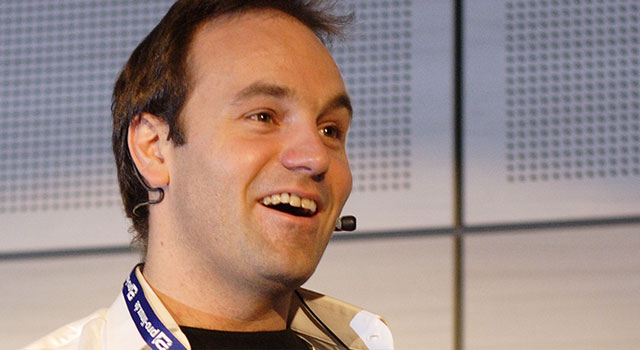
South African billionaire, Ubuntu Linux founder Mark Shuttleworth, revealed on Monday that his company, Canonical, wants to raise US$32m by means of crowdfunding to build a mobile phone called the Ubuntu Edge that will have the computing clout to serve as a desktop replacement.
But if the phone-cum-computer can’t run Windows, will punters take to it?
In January, Shuttleworth announced Canonical, the company behind Ubuntu Linux, plans to bring the operating system to touchscreen devices such as smartphones and tablets. More importantly, Ubuntu Touch will function as a fully fledged desktop operating system when connected to a monitor, keyboard and mouse.
The online community has responded with enthusiasm to the Ubuntu Edge plan, funding more than 10% of the $32m target on day one. If it succeeds, it’ll be one of the biggest crowd-funded project to date. There are still 30 days to run in the crowdfunding effort.
Arthur Goldstuck, MD of research firm World Wide Worx, believes Ubuntu Edge will be as much of a desktop replacement as Linux itself — in other words, it is intended as a niche product and is unlikely to appeal to the mass market.
“If you’re looking at a mobile option as a desktop replacement, that’s already very much a technical solution,” Goldstuck says. Ubuntu Edge is not going to appeal to the non-technical users unless there are plenty consumer-orientated features, he adds.
Ubuntu Edge isn’t the first attempt at a handset-desktop hybrid. Motorola tried its hand at one with its Atrix mobile phone and accompanying “lapdock”. But there were two problems. First of all, the Atrix was insufficiently potent to act as a laptop replacement. Secondly, in laptop mode, the Atrix ran a peculiar version of Android, making it unappealing to those reliant on Windows or Mac.

Canonical promises to overcome the first obstacle. The Ubuntu Edge is set to include a multi-core CPU, 4GB of RAM and 128GB of flash-based storage. But the second challenge remains. That said, of course, operating systems are becoming far less relevant than they used to be as applications and services are moving to the cloud. For those who already use Linux as their desktop, of course, this shouldn’t be an issue.
The Ubuntu Edge will support dual booting, meaning Android users will be able to use the smartphone applications they do now.
But does the market need another mobile operating system in Ubuntu? “There’s always room for a new operating system if it fills gaps that haven’t been met before,” argues Goldstuck, who points out that Android didn’t exist when Apple’s iOS was released.
“We now have a plethora of operating systems and different skins on them,” he says, adding that “the world is always ready for a better mousetrap”. Newcomers can force their way into a market as saturated as mobile phones if they have a “good product and good marketing”.
“What I do find curious is why Canonical needs crowdfunding,” Goldstuck adds. “It’s typically used when a company has no capital and no access to markets.”
He says similar criticism has been levelled at big names from Hollywood or the music world who have turned to crowdfunding when they “clearly have access to capital”.
In a promotional video (see above), Shuttleworth says Canonical turned to crowdfunding — which is only likely to attract early adopters and technology enthusiasts — because it wants to include cutting-edge technologies such as silicon anode batteries and sapphire crystal touch screens that have yet to be proven in the mass market.
Shuttleworth is at pains to point out that Canonical is not trying to compete with handset manufacturers and still intends making Ubuntu Touch available to third-party manufacturers. Rather, the project is being billed as an opportunity to try innovative hardware that big mobile manufacturers might not, and to give credence to Canonical’s notion of “convergence”, which it’s been promoting since the announcement of the Ubuntu Touch software.
If the project meets its target, those who have paid the upfront $830 for a device can expect to receive them around May 2014. — (c) 2013 NewsCentral Media

